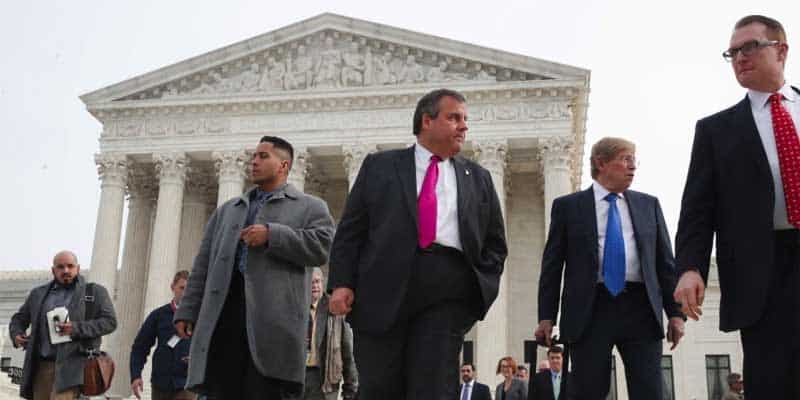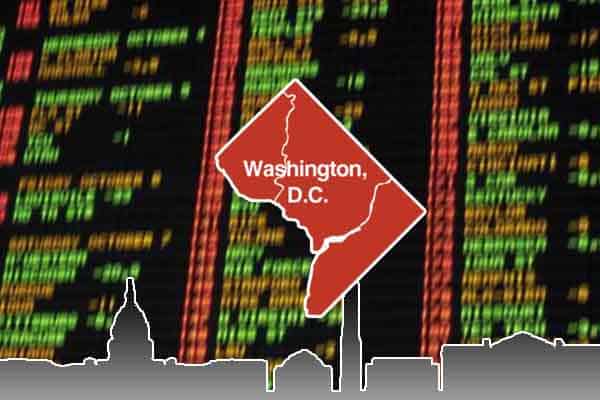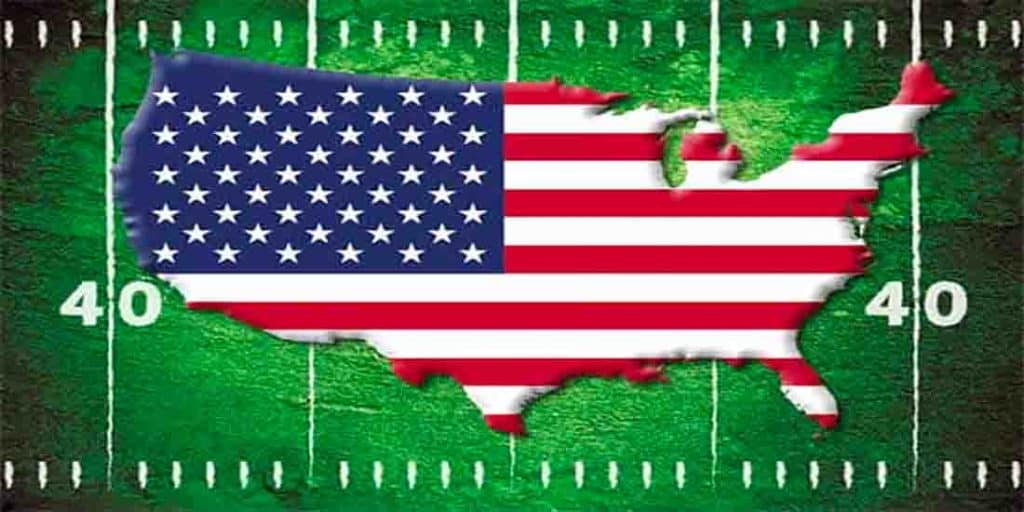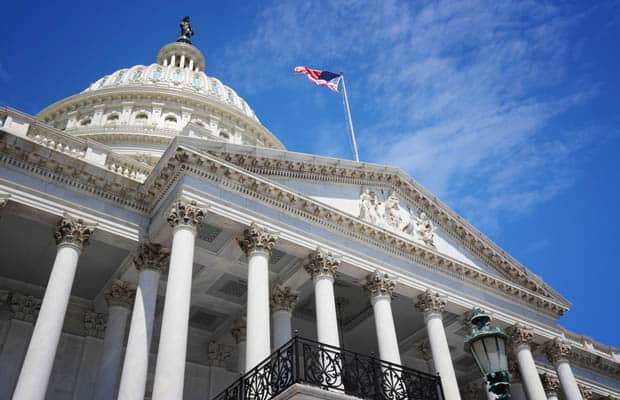The Professional And Amateur Sports Protection Act (PASPA) Explained
 As of May 14th, 2018, the Professional And Amateur Sports Protection Act has been deemed to be unconstitutional, thereby removing the ban on brick and mortar sports betting in the United States. The ruling was handed down by the United States Supreme Court during the renowned New Jersey Sports Betting Case.
As of May 14th, 2018, the Professional And Amateur Sports Protection Act has been deemed to be unconstitutional, thereby removing the ban on brick and mortar sports betting in the United States. The ruling was handed down by the United States Supreme Court during the renowned New Jersey Sports Betting Case.
With PASPA being rendered as null and void by the highest court in the land, US states may now have the right to move forward with the legalization of or prohibition of state-licensed sportsbook gambling.
How PASPA Was Originally Put In Place
In the early 90’s, there was a successful attempt made to relegate sports betting to all but four states. The Professional and Amateur Sports Protection act was heavily lobbied for by all the major sports organizations in the United States. It effectively made owning a sports betting business illegal in all states except Delaware, Oregon, Montana, and Nevada.
The legislation allowed for other states to pass laws to legalize sports betting within a 1 year grace period from when the bill was passed to when it would go into effect. Although this was clearly fashioned for the state of New Jersey to take advantage of, the state failed to take the opportunity despite recently wishing they had. The bill was written to allow other forms of betting like Jai Alai and Pari-Mutuel betting in horse and greyhound tracks. PASPA remained one of the USA gambling laws that impacted the nation's gambling market.
Is PASPA Unconstitutional?
New Jersey thought so. They had been the most recent opponents of the law. Despite having the chance to legalize sports betting when the bill was crafted, their attempts to repeal the law were defeated. After NJ boldly legalized state-licensed sports betting for the Garden State, a lawsuit was filed against them by most of the major sports organizations in the country and was won in favor of PASPA and the organization in which most citizens would like to bet on.
New Jersey’s position was that the sports betting act was unconstitutional because it infringed on the states’ rights to set its own laws and regulations for state-regulated gambling, which is traditionally supposed to be left up to the states according to the US constitution. They were not alone in their fight either, Rhode Island, Iowa, Missouri, and California were beginning to understand the advantages in tax revenues which could be made from state regulated sports betting.
Where Does PASPA Stand With Online Sports Betting?
The Professional and Amateur Sports Protection Act was only expressly written for land-based brick-and-mortar sports betting at physical establishments. This left a loophole for online sports gambling which was once plugged up by The Federal Wire Act. If you don’t know what The Federal Wire Act is or its new implication, we have written a page much like this one which explains the law in more detail. Just visit our guide to understanding the Federal Wire Act.
Neither of these laws restricts any US citizen from patronizing legally regulated and properly licensed international sportsbooks. There are no federal laws in the United States that would work to criminalize any citizen for placing bets online and the only state which has mandated the act of placing a bet online illegal at the state level is Washington. For the rest of the US, anyone can use these legally operated US friendly online sportsbooks without breaking any laws. The same holds true for USA online casinos and USA online poker sites.
PASPA VS The Federal Wire Act.
The Professional and Amateur Sports Protection act worked to criminalize any individual that would operate a land based sports betting business within US borders. The Federal Wire Act was clarified through an official opinion by the Department of Justice in 2011 to apply to the internet and later on, to interstate wagers accepted by US based online sports betting also. PASPA restricted physical sports betting establishments within the US.
The Federal Wire Act makes accepting any bets out of state through wired communications like telephones or telegraphs, and since 2011, the internet, illegal. In 2018 the Department of Justice released another opinion on the federal wire act. The 2018 DOJ opinion applies to all forms of gambling across state lines. It was met with swift legal opposition.
Where Should I Look For Legal Online Sports Betting Opportunities?
We have specialized for the last 20 years in providing guides for the uninitiated to make the transition into enjoying legal online gambling entertainment as easy as possible. In our USA online sports betting guide, we provide a polished list of legal, offshore internet sports gambling sites for you to look through and use as an example in your search for your own legal options. Each of the sites that we recommend have been individually vetted by our team of experienced analysts to have all the proper regulations and licenses required to exist legally and rightfully within the international markets as well as the United States.




